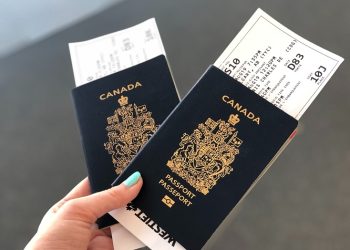Lagos is Nigeria’s melting pot. It’s the dream destination for most people who reside in nearby cities and rural communities. Everyone believes Lagos is a city where dreams come true, regardless of your means of livelihood.
That’s why you find almost everyone in this great cosmopolitan city that is home to over 20 million people, according to recent statistics. In fact, it was estimated that Lagos might become over-populated because of the high influx of migrants from other states, and/or neighbouring countries.
The journey to becoming a confirmed (true) Lagosian is filled with many road bumps. Once you’re strong-willed enough to cross, you will earn yourself the title of a true Lagosian – a title so lofty in glory. Some of these road bumps might include your ability to survive the hustle, the street food, the street life as well as having an up-to-date understanding of the contemporary islands.
These slangs are essential because it is the way most people communicate in the city, and being able to decode and dialogue in these slangs will make anyone a confirmed Lagosian. So, whether you live on the Island or mainland, you should be conversant with these slangs. Jumia Travel, Africa’s No 1 hotel booking portal shares five (5) of these contemporary slangs that might earn you the confirmed Lagosian title:
Owambe
Owambe simply means social events held on weekends, such as weddings. Lagosians love to attend ‘owambes’ because it provides a unique opportunity to mingle especially if you’re single; you get to show off your colourful Aso Ebi, and spend quality time with friends and family.
Interestingly, Owambe has outgrown its original Yoruba connotation to become a cliche for describing weekend social events among Lagosians.
Okrika
Okrika is an Igbo phrase which is widely used to describe cheap second-hand items sold at open spaces. Okrika may include clothes, shoes, bags, electronic devices and phones. A good number of Lagosians patronise these items because they are mostly affordable.
Shine your eyes
Because of the high number of residents, minus frequent commuters who come into the city for business functions, it is not surprising to find the good, the bad, and the ugly cohabitating. Hence, you have to constantly be on the alert if you don’t want to experience the sneaky hands of the bad eggs, because these hands strike faster than lightning and thunder.
So shine your eyes while driving, standing at the bus stop, or when engaging in any transactions.
Johnny Just Come (JJC)
Who is Johnny? Of course, Johnny is somebody’s name. But it means something completely different if you are addressed by that in Lagos. JJC is someone that arrived recently in Lagos and perhaps cannot navigate the city without a guide.
If your demeanour gives evidence of a JJC, bus conductors are usually excited about the prospect of taking advantage of you by hiking the transport fare, or perhaps you may be driven beyond your bus stop.
There are some people who can still be tagged Johnny even though they’ve lived for years in the city. In any case, do not act like a JJC if you want to be a confirmed Lagosian.
Agbero
Agbero is a Yoruba word for bus conductors who hail passengers. However, the name has abandoned its original meaning and has submitted itself to being used to describe thugs who collect money from commercial motorists for picking passengers at the bus stops, and may resort to assault if the money is being withheld by the drivers.
Refusal to pay this levy may lead to heated argument, harassment or unnecessary delays. In fact, passengers always encourage drivers to settle these Agberos to avoid unnecessary confrontations





















